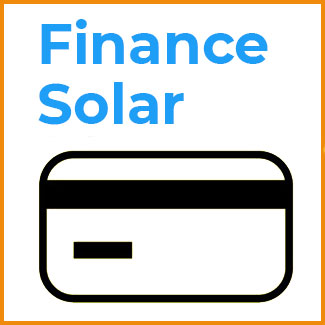We discussed the perils of signing a solar lease or power purchase agreement in this previous post. Instead, we advised home owners and property owners to buy their own systems. Buying your own system will not only get you the 30% Federal Investment Tax Credit, but will also save you from hefty financing fees.
But what if you do not have the cash to put up to outright buy your solar system? Then you will have to finance your solar system.
Considering a typical residential solar system costs anywhere between $15,000 to $30,000, it will be important to figure out the best way to finance it. Today, there are more than a few ways you can finance your solar solution.
Here we list your options from best to worst with some explanation on why we rank them the way we do:
- Your Existing Mortgage: Your existing (or new) mortgage is likely the best way to finance your solar system. Why? It is simple. Usually home mortgages have much cheaper interest rates than other types of financing. Furthermore, your interest payments on your mortgage are tax deductible (which is not the case with pure-solar financing deals).
- Home Equity Lines or Home Improvement Loans: Home Equity Lines also have competitive rates and are rather easy to get qualified for.
- P.A.C.E. Financing: P.A.C.E. stands for Property Assessed Clean Energy Financing. Developed at the Berkeley Public Policy Labs, P.A.C.E. is an innovative way to finance all renewable energy projects on all qualifying buildings and districts. When one finances their solar project with P.A.C.E., it is not them or the property owner entity that is taking the loan, but instead it is the building that is taking on the loan. So P.A.C.E. financing does not require FICO scores or credit analysis because the loan is being taken not by a person or financial entity but instead it is a loan that is being taken by the building. And the loan payments get attached to the property’s tax bills. Another advantage of P.A.C.E. financing is that the interest payments of a P.A.C.E. financing are also tax deductible like a mortgage. One negative against most P.A.C.E. offerings is that their interest rates seem to be high, in the 7-8% range.
- Banks, Credit Unions and other Solar Financing Organizations: Thanks to solar’s rapid growth rate and recent popularity, there are more than 100 various banks and financing organizations who currently provide secured and unsecured loans for solar projects. These loans are usually priced a bit more expensively than traditional mortgage loans, in the 6-8% interest fee range. You can start by calling your local credit union and bank. Or simply run a google search for “solar loans” and you will get dozens of options.

